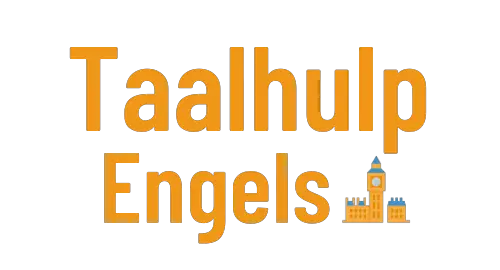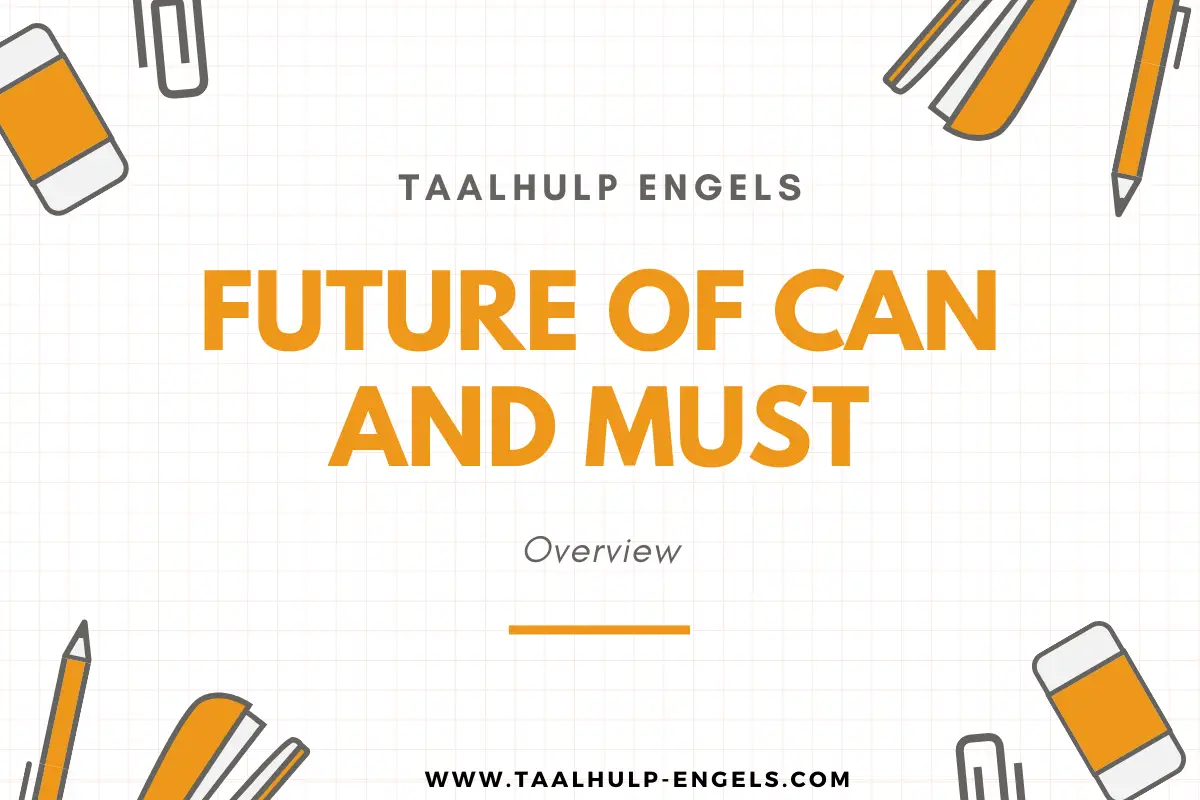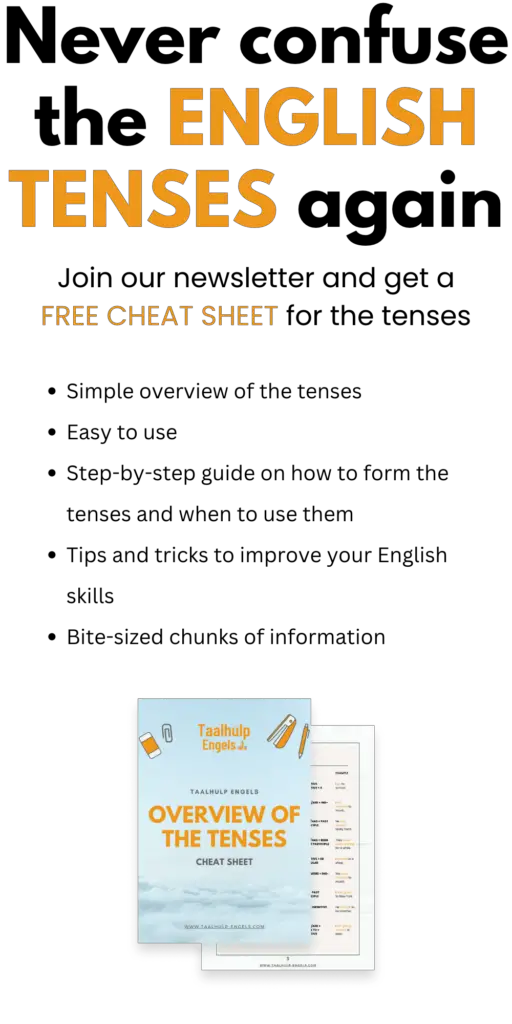You can use a variety of tenses in English when you want to talk about the future. You could use the will-future or going to-future, or you could also use a future form of ‘can’ and ‘must’ to express future meaning. This article offers a complete overview of how to express the future of can and must.
If you want an overview of the different ways to talk about the future in English, click here.
The future of can and must
There are different structures you can use when expressing the future of can and must. Which structure depends on what you want to say. Can and must don’t have an infinitive form, which means that it’s impossible to use the will-future and going to-future with these verbs because you need ‘will + infinitive’ or ‘going to + infinitive’.

There are some structures you can use to talk about can and must in the future. You have an overview below of the different structures and when to use them. Each form is explained further in this article.
| Can expresses ability/no ability | will be able to / won’t be able to |
| Can expresses permission | will be allowed to |
| Must expresses obligation | will have to |
| Cannot and must express prohibition | won’t be allowed to |
| When there is no obligation | won’t have to / won’t need to |
Here is another overview of the difference between these verbs in the present and future.
| Present | Future |
|---|---|
| can (ability) | will be able to ‘ll be able to |
| cannot (no ability) | will not be able to won’t be able to |
| can (permission) | will be allowed to ‘ll be allowed to |
| must (obligation) | will have to ‘ll have to |
| cannot (prohibition) | will not be allowed to won’t be allowed to |
| must not (prohibition) | will not be allowed to won’t be allowed to |
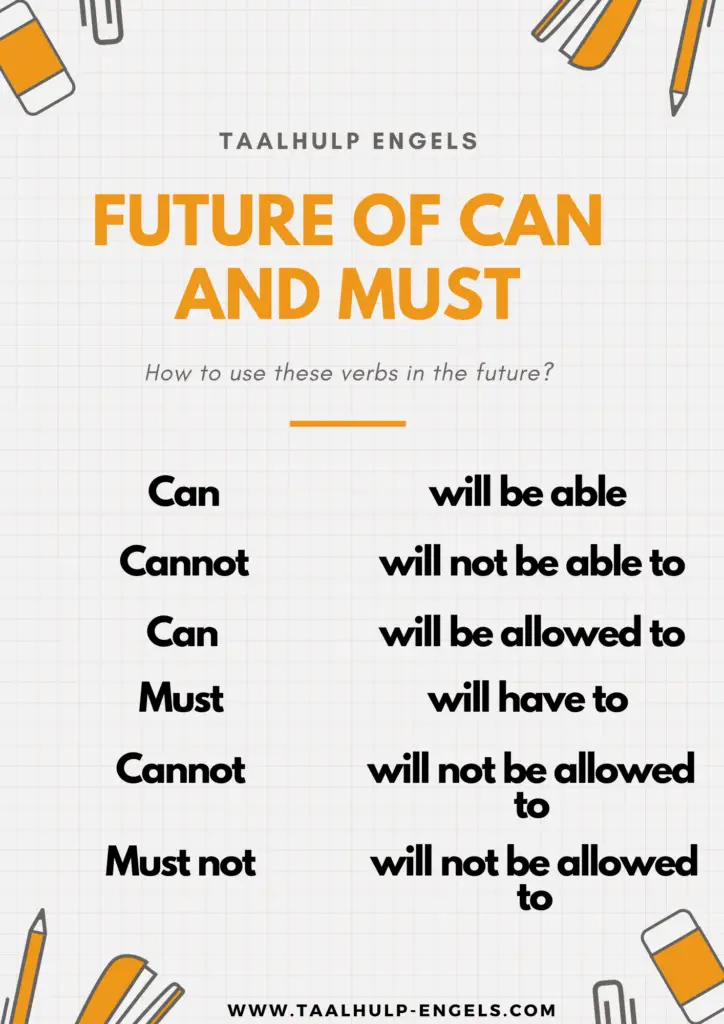
Can or cannot expresses ability or no ability
When you want to express ability or no ability in the future, you use the following structure:
ability: will be able to
no ability: won’t be able to
Some examples:
| You will be able to have visitors again. |
| We won’t be able to go to school because of the snow. |
Can expresses permission
When you want to express permission in the future, you can use the following structure:
will be allowed to
Some examples:
| You will be allowed to use your phone. |
| You will be allowed to go to the restroom. |
Must expresses an obligation
When you want to express an obligation in the future, you use:
will have to
Some examples:
| You will have to be on time. |
| We will have to pay. |
Can’t and mustn’t express a prohibition
When you want to express a prohibition, you use:
won’t be allowed to
Some examples:
| You won’t be allowed to make a call. |
| We won’t be allowed to eat too much. |
No obligation
When there is no obligation, you can use:
won’t have to
won’t need to
Some examples:
| You won’t have to pay. |
| We won’t need to listen. |
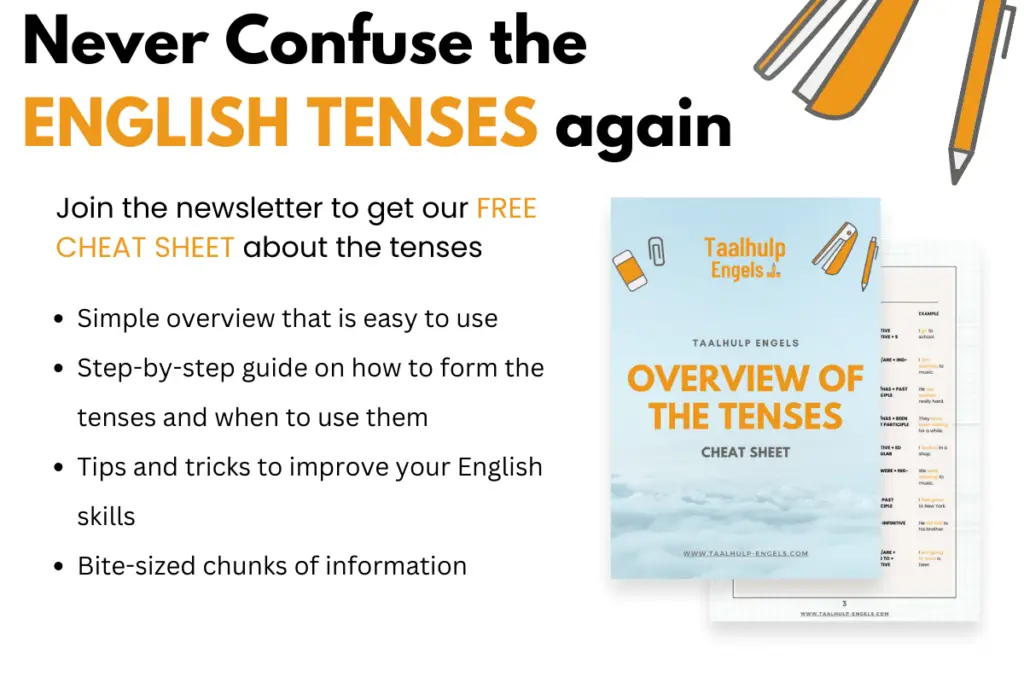

Exercises
- Future of Can and Must Exercise 1
- Future of Can and Must Exercise 2
- Future of Can and Must Exercise 3
- Future of Can and Must Exercise 4
- Future of Can and Must Exercise 5
